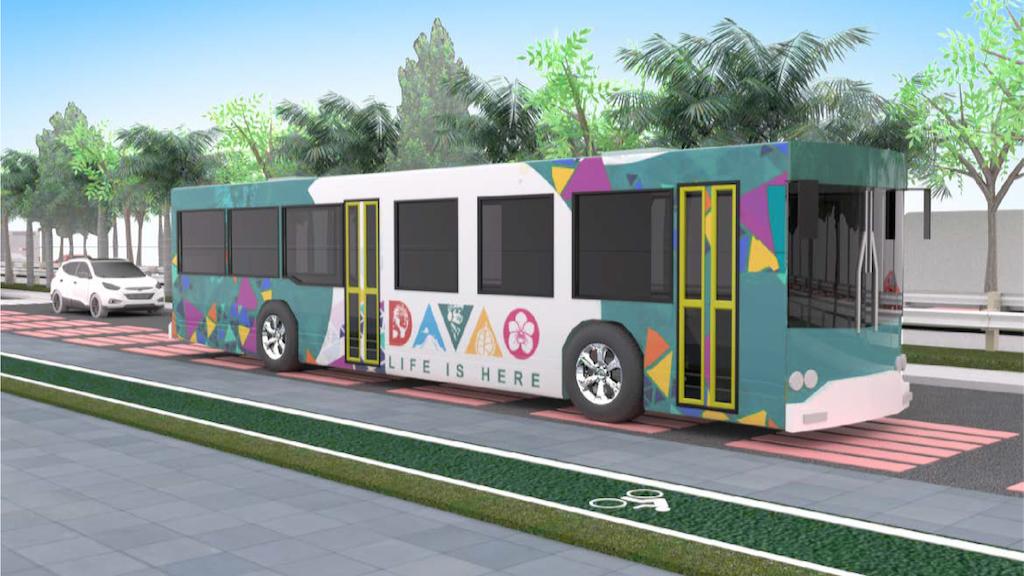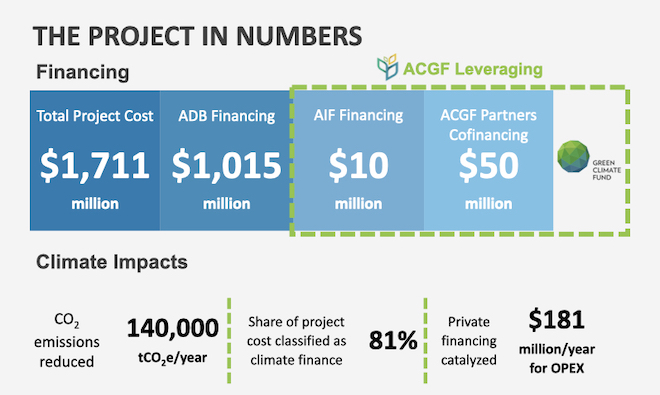
The Davao Public Transport Modernization Project is ADB’s largest road-based public transport project in the Philippines.
The Davao Public Transport Modernization Project was approved for financing by ADB in June 2023 as the first project in the Philippines to deploy an electric bus fleet at scale.
![]() ISSUE: A fragmented public transport sector has led to severe congestion and vehicle pollution.
ISSUE: A fragmented public transport sector has led to severe congestion and vehicle pollution.
Davao City is the third largest city in the Philippines and has approximately 1.78 million inhabitants. Public transport accounts for 80% of trips within the city, but fails to keep up with changing travel demands and patterns. This is partly due to a fragmented sector, that mostly consists of privately owned single vehicles, many of them highly polluting. As a result, severe congestion and vehicle pollution have increased. At peak times, travel speeds in the city’s central business district fall to less than 10 kilometers per hour, which also affects the opportunity cost in the form of lost income.
![]() SOLUTION: Deployment of a modern public transport system with a large electric bus fleet that will cater to 800,000 passengers per day and cut greenhouse gas emissions by 60%.
SOLUTION: Deployment of a modern public transport system with a large electric bus fleet that will cater to 800,000 passengers per day and cut greenhouse gas emissions by 60%.
The Davao Public Transport Modernization Project was approved for financing by the Asian Development Bank (ADB) in June 2023 as the first project in the Philippines to deploy an electric bus fleet at scale. It will support the country’s efforts to reduce greenhouse gas emissions and promote climate action, and serve as an example for public road transport systems in other parts of the country. In addition to infrastructure—from buses and bus stops, depots, and terminals, to deployment of an intelligent transport system—the project includes performance-based contracts for private sector operation and maintenance of bus routes and a social development program. The new bus fleet is expected to service 800,000 passengers per day, many of them from vulnerable populations, and reduce annual greenhouse gas emissions from public transport in the city by 60%, supporting the country’s climate ambitions and commitments.
![]() HOW DID THE GFH AND ACGF HELP?
HOW DID THE GFH AND ACGF HELP?
In 2020, as part of the preparations for the Green Climate Fund (GCF) Green Recovery Program, the ACGF, managed by SERD’s Green Finance Hub (GFH), screened ADB pipelines to identify projects with significant climate change mitigation potential. The Davao Public Transport Modernization Project presented an opportunity to assess inclusion of an electric bus fleet into the project. The feasibility study showed that this would not only be more eco-friendly but also offer a higher economic rate of return despite the initial investment. To offset this increase, the ACGF offered a blend of concessional financing, combining AIF and GCF cofinancing with ADB’s own resources. The introduction of the electric bus fleet will contribute to improved air quality and noise pollution. As the country’s first commercial-scale electric vehicle bus fleet, it is a major milestone in public transport in the Philippines.
